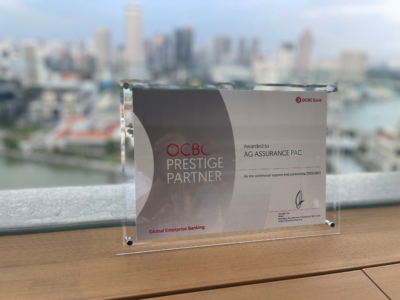How To Change Company Financial Year End
Every company has a Financial Year End (FYE) date that, as statutory compliance, helps determine the due dates of certain financial reports such as corporate taxes and annual returns. Typically, most companies’ FYE is at the end of the year, while newly incorporated businesses are given a choice to decide their FYE date.
How does changing company financial year end affect annual return filings?
Both non-listed and listed businesses must submit their annual returns filing within seven months and five months, respectively, after their FYE dates. For businesses that have share capitals and registered branches out of Singapore, both non-listed and listed businesses must submit their annual returns filing within eight months and six months, respectively, after their FYE dates.
The submission of annual returns filings can only happen after the company’s Annual General Meeting (AGM) has happened, after their FYE date, and after their financial statement has been submitted.
Factors to note when selecting your FYE date
- Business Cycle: Businesses should select an FYE date that suits their business cycle. For example, retail businesses’ peak period happens during the December holiday. Hence, selecting their FYE date on 31 January will help them to account for their peak sales.
- Tax exemption schemes eligibility: Start-ups are usually covered under the tax exemption scheme. Hence, it will benefit them to maximise their tax benefits by setting their FYE date on the last day of the 11th month from their incorporation date.
- Presence of parent company: If the business is a subsidiary company, they would then have to set their FYE date according to what their holding company sets so as to make the tax procedures more efficient.
Changing your FYE date
The business is required to inform the Account and Corporate Regulatory Authority (ACRA) of the requested change of their FYE date by submitting a “Change of FYE” notification on the Bizfile page. No additional fee will be required for the request.
In addition, the business will have to notify the Inland Revenue Authority of Singapore (IRAS) by updating the corporate profile/contact details at mytax.iras.gov.sg. This is a necessary step as IRAS will then need to redetermine the sending of the Estimated Chargeable Income (ECI) submission notification letter.
Under Section 198(5), there are, however, certain businesses that are not able to change their FYE dates without ACRA’s prior approval. Such businesses fall within these factors:
- Change in FYE date results in the business’s financial year being longer than 18 months.
- FYE date was recently changed within the last five years.
If your business falls within these two factors, a director’s resolution that is signed is needed before informing ACRA.
Conclusion
All in all, you would want to decide on an FYE date that can fully maximise your business’s business cycle and any relevant schemes. Whether your business is looking into changing its FYE date or working towards ensuring that they adhere to the proper filing of financial reports, we can provide you with professional advice and solution.
AG Singapore is one of the best audit and accounting firms in Singapore. We provide one-stop corporate solutions such as company incorporation, branding, payroll and GST, and affordable accounting services, among others. That way, you can better focus on running and growing your business in the direction you intend. For more information, head over to https://ag-singapore.com/ to find out more!














